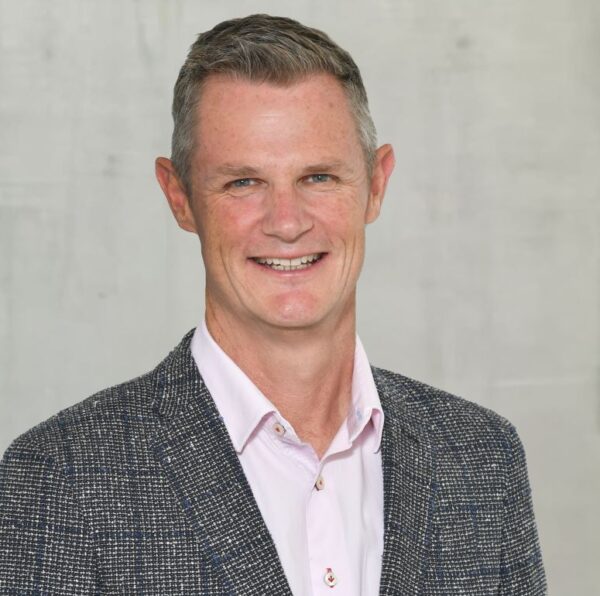Air New Zealand chief executive Rob Fyfe doesn’t use the terms ‘vision’ or ‘mission’. “The guys on the baggage line would not enjoy that”, he told the finalists in 2009’s NZIM/Eagle Technology Young Executive Award.
At luncheon with them at Auckland’s Jervois Steak House, the winner of last year’s Top 200 Executive of the Year award said he has an interactive and verbal management style and he gave the finalists insights into how he leads and how he has approached his job.
His first challenge at Air New Zealand was determining the strategic direction of the airline. “We asked what kind of airline do we want to be – do we want global domination? To be regional? Low-cost?” The airline’s only point of difference was knowing New Zealand better than any other airline, he said. “We need to make New Zealand our reason for being.”
Fyfe said research showed what visitors to New Zealand took away with them was stories.“They told us about people they met, experiences they had and we started selecting those stories. One chap said, ‘I walked into pub and met some people who took us pig-hunting.’ Well, it sounded like scene out of Deliverance, but they said they felt like they knew these people.”
He said the company took those stories and turned them into what they called “themes”: the characteristics that people loved about New Zealanders. The themes lie behind every decision the airline makes, from the wine they choose in-flight to marketing, to new seats. It’s all about ensuring that when visitors get on board “our” aircraft, they experience that “New Zealandness”.
Fyfe wants visitors to go away with stories and for staff to be participants in those stories.
“We’re minor airline – 35th or 36th in the world – and there are much bigger players who could do lot of damage to us. We can’t out-muscle them, so we have to outmanoeuvre them, be faster and more nimble.
“Airlines aren’t good at taking risks for obvious reasons. We tend to be very risk-averse but we wanted to be more risk-embracing… Being fast and nimble with higher appetite for risk – everything we do in the business comes backs to that philosophy.”
The four key principles that Air New Zealand operates its business on, says Fyfe, are:
1. Treat everybody like friend. It’s simple concept, he says. staffer saw passenger on the day’s last flight out of Sydney standing outside Auckland airport and asked why he was still there. “My bags are missing and my car keys are in it,” he told her. The flight attendant invited him to stay in their spare room and said her husband would bring him back in the morning. Says Fyfe: “I’ve told people that story and they’ve said to me, that’s what Kiwis will do. It’s about going above and beyond.”
2. Be yourself. This philosophy is about being authentic and genuine and not delivering platitudes, in contrast to some airlines where every interaction is scripted. On domestic flights, staff are encouraged to learn Maori culture, but it’s not compulsory. “If you feel comfortable, you can do it.”
3. Can do. The attitude is “Make stuff happen.”
4. Pride. Make Kiwis proud to fly with the airline.
“Those four things define what I do, what we do as company. Be yourself, make yourself approachable and accessible.” He sets the tone by sending an email to all staff every week, something that his predecessor Ralph Norris instigated.
“Once my wife Donna had gone on school camp. In the newsletter, I described my week of looking after my daughter. She convinced me her mother straightened her hair every day with GHDs. It took 45 minutes before work. When she got back, Donna said, no, it was more like once month! It’s great being prepared to open up and let people see who you are.”
His final piece of advice was: “If you act fast, you will make mistakes.” Getting things wrong and making mistakes is very human thing. Most corporations are so risk-averse, they lose their humanity, he says. “If you look impersonal, critics are more comfortable kicking you around when you make mistake.”
Fyfe says he was on holiday when the volcano ash crisis hit, but the airline’s response was optimal. “That’s the success of leader – when your principles are so deeply ingrained that [even when] you’re not there it goes like clockwork.”

Construction company Leighs names new CEO
Construction company Leighs has announced André Lovatt as its new chief executive, effective 23 June 2025. He replaces Gary Walker who has resigned to spend more time with his family










